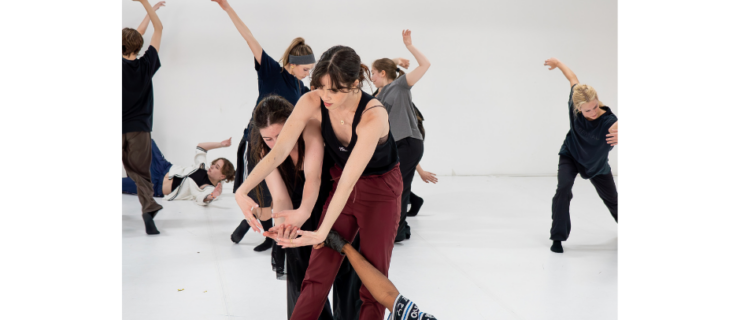Advice For Dancers
Q
How can I remember modern dance combinations better? I memorize phone numbers, names, vocabulary, and dates easily, but I’m unable to remember dance combinations. It upsets my teachers, though I can get the phrases down after I’ve been shown a few times. I’ve already tried to overcome my weakness on my own without success. Do you think a doctor could help me? I can’t give up dancing because of my memory.
Miyoung
Charlotte, NC
A
You don’t need to! We all have strengths and weaknesses, and we all need to adapt. Some, for instance, excel verbally, whereas others are spatially adept. According to Dr. Howard Gardner, a psychologist who teaches at Harvard University, the ability to remember dance combinations lies in the kinesthetic realm. Part of it may be dictated by your genes. Yet I believe that you can keep improving, given that you are able to pick up dance combinations with time. Use your strong verbal skills to break down each movement into its simplest components after class. Then, practice! A private lesson once a week with a dance teacher who can help you absorb the flow from movement to the next would also be useful.
Q
I’m really bummed out! I spent all year working to improve my dancing hoping to get a great evaluation. It didn’t happen. My teachers say my attitude is excellent but that my technique has gotten worse over the past few months. I know I haven’t looked as good as the other dancers after growing a few inches. Now I feel like a total failure.
Confused Teen
Brooklyn, NY
A
You are not a failure; you’re simply going through an awkward transition from child to an adult. It’s called adolescence! During this time, your body will grow first, followed later by an increase in strength. Dancers who have a significant growth spurt also experience a temporary loss in flexibility, coordination, and balance, which leads to a decline in technique. None of this is bad as long as you don’t overwork. While many people believe that young dancers can handle anything, open growth plates are two to five times weaker than the surrounding joint capsules and tendons. Fortunately, this situation stabilizes once the skeleton matures (between ages 18 and 21). What can you do until then? According to dance medicine specialist Craig Phillips, P.T., you can reduce the risk of injuries by taking time to warm up before class, followed by gentle (not excessive) stretching to cool down. Strengthening exercises using light resistance, such as Pilates, can also protect you by focusing on the trunk area to provide a stable base, as well as ensuring that all major muscle groups are equally balanced. Body conditioning, not extra dance classes, is the best approach.
Q
Lately, I ‘ve had a weird sharp stinging pain that shoots down into my toes whenever I go on toe. I’m wearing the same brand of pointe shoes, so that isn’t the problem. My repertoire this season is also the same. I know you’ll say “go see your doctor,” which I plan to do during the break. I was just curious what you think might be happening.
Sore Toes
Miami, FL
You read my mind: The smartest move for all dance-related injuries is to get an accurate diagnosis from a specialist—in this case, an orthopedist who sees dancers on a regular basis. That said, your symptoms do sound a lot like a neuroma or pinched nerve that occurs in the webspace between your middle toes. I’m told that 90 percent of the time the pain should feel substantially better when you take your toe shoes off. In terms of how to dance without discomfort, think big(ger). Toe shoes need to be resized every three years after you stop growing because your feet spread. Obviously, the sooner you can deal with this problem, the better.
Q
My secret is particularly embarrassing because I am a principal dancer. In the last few months, I’ve become terrified of performing. I continue to go onstage and dance my parts. However, I always have a feeling that I might lose it at any time. What’s going on?
Panicked Principal,
St. Louis, MO
A
Please give yourself a break. Every dancer is vulnerable to performance anxiety. While this tends to be more common in corps dancers with little stage experience, great performers both in and out of dance have experienced this. Sir Lawrence Olivier struggled with debilitating stage fright for five years unbeknownst to his audience. Stress, high expectations, success, and perfectionism can all play a role. Fortunately, you don’t have to suffer with it. Rather than toughing it out, my advice is to seek help. Working with a psychologist who specializes in the performing arts to overcome your anxiety step by step can offer relief. Your state psychological association can refer you to an expert in your area.




